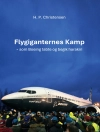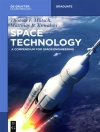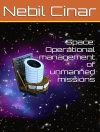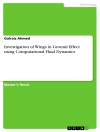This book describes the resilient navigation techniques under the background of collaboration in swarm. The significance of this work is that it focuses on the navigation enhancement by collaboration in swarm rather than ground infrastructure, which exploit potentialities of swarm in GNSS restricted environment.
Although unmanned swarm is receiving greater attention, both through theoretical research and through increasing mention in the industrial developments, the navigation promotion by effective and efficient collaboration remains largely unexplored. While my scholarly work has explored some of the modeling, error characteristic, fusion algorithm, fault detection, and isolation aspects of the “adaptive navigation system” (such as the navigation system of robots and ground vehicles, aircrafts, aerospace vehicles, and unmanned aerial vehicles), the present book proposes the specialized investigation on the navigation with the resilient character, which could maintain the performance by essential collaboration with members in swarm in GNSS degradation environment.
This book focused on the resilient navigation techniques under the background of collaboration in swarm. The key techniques of collaborative resilient navigation are proposed, including the collaboration framework, collaborative observation modeling, geometry optimization, integrity augmentation, and fault detection. The experiments are also carried out to validate the effectiveness of the corresponding techniques.
Daftar Isi
Chapter 1 Introduction.- Chapter 2 Collaborative Resilient Navigation Frameworks.- Chapter 3 Modelling for Resilient Navigation via Collaboration.- Chapter 4 Collaborative Localization-Based Resilient Navigation Fusion.- Chapter 5 Collaborative Observation-Based Resilient Navigation Fusion.- Chapter 6 Collaborative Geometry Optimization in Resilient Navigation.- Chapter 7 Collaborative Integrity Augmentation in Resilient Navigation.- Chapter 8 Collaborative Fault Detection in Resilient Navigation.- Chapter 9 Summary and Scope.
Tentang Penulis
Rong Wang was born in Shanxi Province, China, in 1984. He received his bachelor’s degree of Automation Engineering in 2007 and Ph.D. degree in Navigation, Guidance and Control from Nanjing University of Aeronautics and Astronautics in 2014, respectively. Currently, he is an associate professor and a Ph.D. supervisor in tenured track of the Navigation Research Center, College of Automation Engineering, NUAA.
Dr. Wang was selected for the “Qinglan Project” talent program of Jiangsu Province, and as a “Changkong Scholar” of NUAA. He has been the leader of two National Natural Science Foundation of China projects, a Natural Science Foundation of Jiangsu Province project, and Aviation Science Foundation project, et al. His research interests include positioning and navigation technologies for aeronautics and astronautics vehicles.
He serves as a member of the Youth Working Committee of China Satellite Navigation and Positioning Association and the committee of the Youth Professional Technical Group of the Internet of Things of the Chinese Institute of Electronics. He also serves as a youth editorial board member of academic journals such as “Aerospace Technology”, “Unmanned Systems Technology”, “Navigation, Positioning and Timing”, and “Navigation and Control”, “NUAA Transactions on Aeronautics and Astronautics”, et al.
Zhi Xiong was born in Sichuan Province, China, in 1976. He received his Ph.D. degree in navigation, guidance, and control from Nanjing University of Aeronautics and Astronautics in 2004. Currently, he is a professor at the College of Automation Engineering, Nanjing University of Aeronautics and Astronautics. His research interests include inertial navigation and integrated navigation system.
Jianye Liu was born in Zhejiang Province, China, in 1957. He received his Ph.D. degree in in control, guidance and simulation for aircraft from Nanjing University of Aeronautics and Astronautics in 1995. He has been a professor at the College of Automation Engineering, Nanjing University of Aeronautics and Astronautics since 1996. His research interests include inertial navigation and integrated navigation system.












